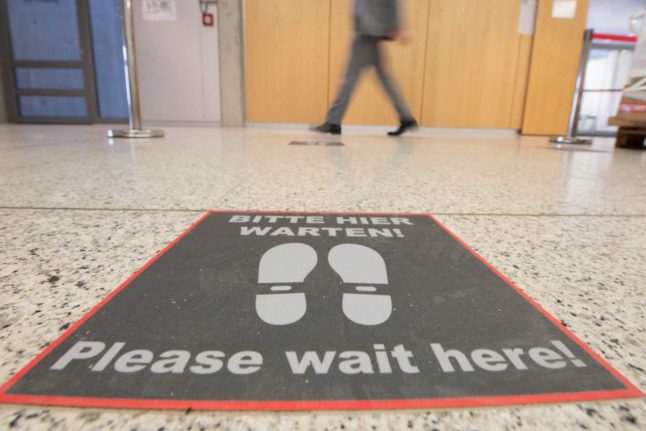Switzerland’s vaccination scheme continues to move along at a relatively middle-of-the-road rate.
With just over 15 percent of the population receiving at least one dose – and six percent receiving both – Switzerland’s vaccination rollout is slower than some states but faster than others.
Whether through being in a hospital, aged-care or retirement facility – or by having registered and received an appointment – more and more Swiss residents now have a date at which they’ll get the jab.
READ MORE: How to register for the coronavirus vaccine in your Swiss canton
But whether your appointment is next week or next month, we are still in Switzerland – which means paperwork is king. Here’s the documents you’ll need to get the jab.
What documents do I need to register?
None – although you will need some kind of internet-enabled device, i.e. a laptop or smart phone.
The way in which you register depends on your canton. In some, registration is already open to the general public and you do not need an invite to register. In others, registration is so far restricted to risk groups and healthcare workers.
When registering, you may need to confirm your registration online. In some cases this can be done by SMS, but in other cases you’ll need to confirm through the power of the World Wide Web.
Given that many of the most vulnerable people for the virus may also be technologically impaired, there is another option – a good old-fashioned phone call.
In Zurich, you can get in touch on 0848 33 66 11. Click here for a list of contact details for vaccination in each and every Swiss Canton.
If you are in a risk group, you may need to bring a medical certificate or other supporting documentation to the actual appointment, but you will not need this for the registration.
You will also not need your health insurance card or ID for the registration, provided you know your own name and birth date.
In most cantons, people who want the jab to be entered into their electronic vaccination card will need their health insurance card number while registering.
What documents do I need at the appointment?
For people without high-risk status, you will need to bring official identification and your health insurance card.
This is the same in each canton.
The staff of the vaccine centre need to verify that they are actually vaccinating the person they’re hoping to vaccinate, so this info will be essential.
In addition, you will need to provide medical evidence of a condition which makes you high risk – if of course that is the reason for you getting your appointment.
You should also bring your vaccination card – i.e. the certificate you have had since you were born with all the info about your vaccinations – although cantonal authorities have said they will not refuse to vaccinate if you do not have one or if you have forgotten it.
What documentation will I get?
Everyone who gets the jab gets an official certificate with information like time, date, manufacturer of the vaccine and which dose it was (i.e. first or second).
More information about the exact nature of the vaccine information is available at the following link.
READ MORE: How do you prove you have been vaccinated in Switzerland?
Please note: As with all of our coronavirus guides, this is intended to provide foundational information only and does not amount to legal advice. Please check with authorities in your canton for official information.
Have we got something wrong? Please let us know at [email protected]



 Please whitelist us to continue reading.
Please whitelist us to continue reading.
Member comments